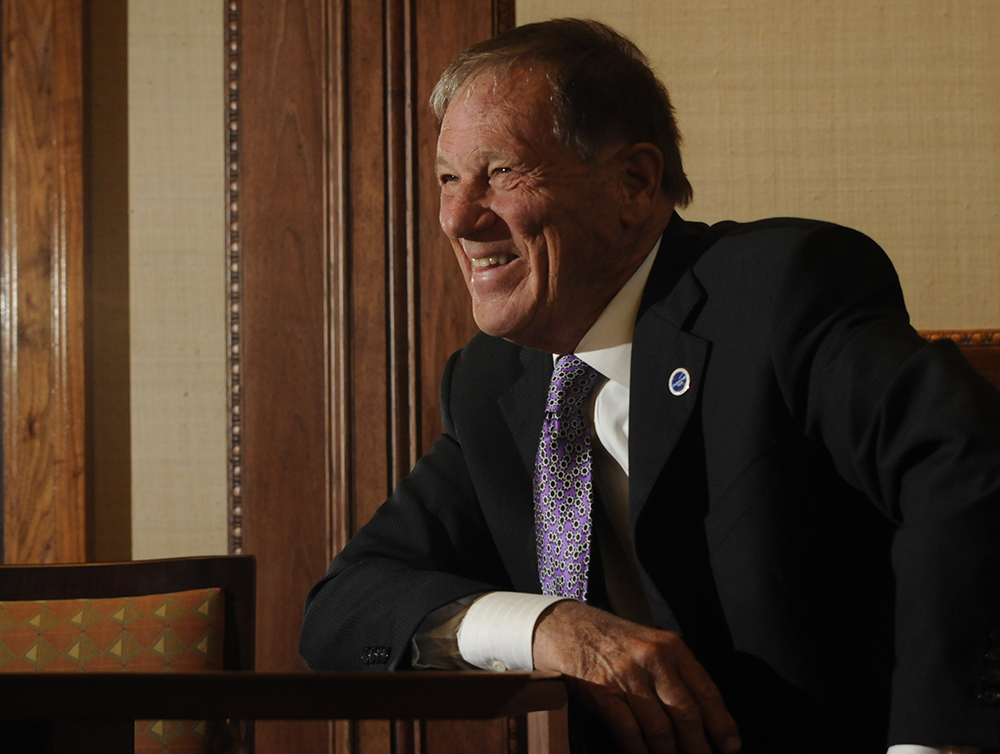Some Chattanooga State employees worry that the controversial administrator charged with finding new revenue streams is bleeding their departments dry.
Faculty members have been irked at the hiring of Chief Innovations Officer Lisa Haynes, who was appointed last year without a required bachelor's degree. President Jim Catanzaro is under investigation by his bosses at the Tennessee Board of Regents over her hiring and other issues, and faculty have twice voted no confidence in his leadership.
But professional staffers -- who include non-faculty employees like librarians, advisers and mid-level managers -- have additional concerns. In a position paper posted online Monday, the college's Professional Staff Association wrote that many members view staff reductions in their own departments as directly related to gains in Haynes' division.
The paper floated the idea of a vote of no confidence from the professional staff -- which wasn't part of the faculty's votes. The paper wasn't specific about which departments had experienced reductions. But it said those lost positions were viewed as essential, especially given new initiatives like Tennessee Promise, which will allow all graduating high school seniors to attend community college or technical school for free for two years.
And people worry that more positions will be funneled to the innovations department as employees move on or retire.
"Cutting staff at such a time leaves employees feeling unprepared for extreme changes in enrollment, retention services and financial aid consulting," the paper said.
Professional and support staffers met with Catanzaro on Thursday afternoon, when he doubled down on his message that innovations and new revenue streams are vital to the college's future. He has held similar meetings with faculty. On Monday, he sent an email to nearly 500 business and community leaders defending his tenure and leadership. He blamed faculty discontent not on the hiring of Haynes, but on their fear of change.
It's similar to the explanation he gave for campus controversy more than a decade ago.
In March 2003, faculty members were considering a vote of no-confidence in him after growing frustrated with projects they viewed as boondoggles, including a city magazine and a television show featuring the president. At that time, Catanzaro said the discontent among faculty had more to do with their fear of change in the college's philosophy toward leaner operations and a more results-oriented approach to education.
"A new day has dawned," he said. "Government in general, and higher education specifically, needs to be scaled back, and permanently so."
In December of the same year, he defended himself in front of a group of scholars, saying projects such as the magazine, the addition of a chamber orchestra and a theater department would help create better-prepared students. And those who doubted him were simply afraid of change.
"Sometimes people will say, 'Well, he's interested in doing these things for his own ego," Catanzaro said at the time.
"It's very difficult for people to hear that change is upon us when traditional resources that we can call on are drying up. We have to change, as painful as it is."
Leaders of the Professional Staff Association declined to comment on Thursday. But the group did place an addendum on its position paper after holding an impromptu meeting with a few of PSA's nearly 250 members.
In the addendum, they wrote that not all staffers are against the president's vision and that some are interested in joining his recent call for cooperation and feedback. The group also removed its online polls asking about the work climate and the possibility of a vote of no-confidence.
Contact staff writer Kevin Hardy at khardy@timesfreepress.com or 423-757-6249.


